

Japan's Asahi Glass, one of the world's major glassmakers, is looking to cash in on going green in China.
The Chinese Foreign Ministry on Tuesday urged Japan to stop hyping up external threats and explain the true intent of its military buildup.
China criticized Japan on Monday for repeatedly making provocative remarks and accused Japan of breaking the status quo on the Diaoyu Islands.
 The outdated thinking of "the zero-sum game" has prompted Japanese Prime Minister Shinzo Abe to frequently label China as a troublemaker.
The outdated thinking of "the zero-sum game" has prompted Japanese Prime Minister Shinzo Abe to frequently label China as a troublemaker.
To realize that, it is necessary to expose the true intentions of the Abe administration. The prime minister who promises prosperity for Japan is, instead, leading the country toward disaster.
We see no proper starting point for sensible consultation with Abe, who is clearly determined to press ahead with his brinkmanship.
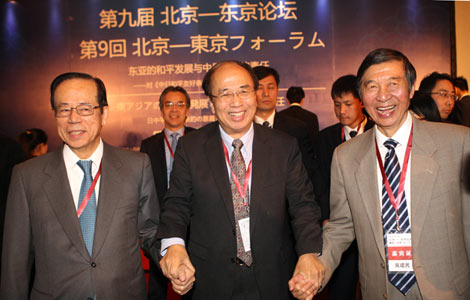 A stable China-Japan relationship is in the interests of the two countries, Asia and the world, participants in the Beijing-Tokyo Forum agreed on Sunday.
A stable China-Japan relationship is in the interests of the two countries, Asia and the world, participants in the Beijing-Tokyo Forum agreed on Sunday.
When Toshihiro Soejima, the director of The Genron NPO, began his annual fundraising efforts for the Beijing-Tokyo forum this year, he was worried "we won't be supported by companies”.
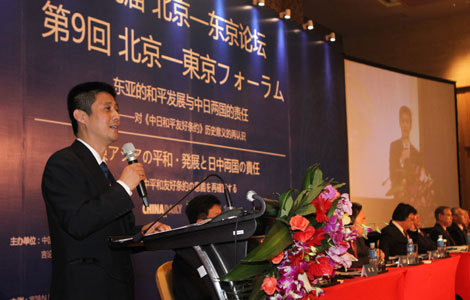 The ninth Beijing-Tokyo Forum took place in Beijing on Oct 26 and 27. About 80 people of vision and insight from China and Japan frankly exchanged views on politics, economy, security, media, and the deteriorating attitude of the Chinese and Japanese people toward each other.
The ninth Beijing-Tokyo Forum took place in Beijing on Oct 26 and 27. About 80 people of vision and insight from China and Japan frankly exchanged views on politics, economy, security, media, and the deteriorating attitude of the Chinese and Japanese people toward each other.
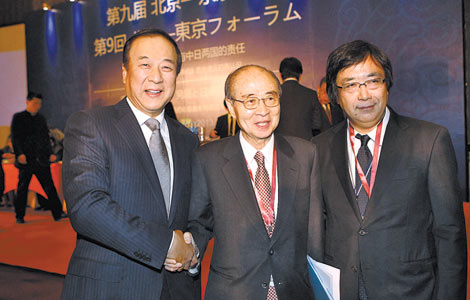 Veteran Chinese experts and military officers challenged the "active pacifism" recently pushed by Japanese Prime Minister Shinzo Abe, saying Beijing welcomes true pacifism, but in this case it appears there may be other intentions.
Veteran Chinese experts and military officers challenged the "active pacifism" recently pushed by Japanese Prime Minister Shinzo Abe, saying Beijing welcomes true pacifism, but in this case it appears there may be other intentions.
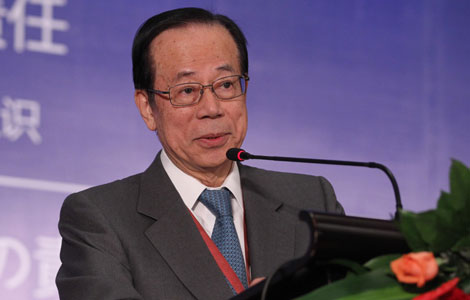 China and Japan should help each other and cooperate in a variety of fields to enhance mutual trust and improve strained bilateral ties.
China and Japan should help each other and cooperate in a variety of fields to enhance mutual trust and improve strained bilateral ties.
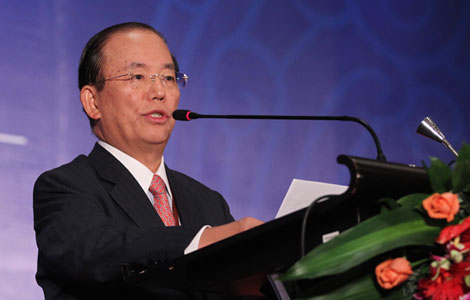 Economic ties can play a leading role in reshaping strained China-Japan relations, according to Toshiro Muto, former deputy governor of the Bank of Japan.
Economic ties can play a leading role in reshaping strained China-Japan relations, according to Toshiro Muto, former deputy governor of the Bank of Japan.